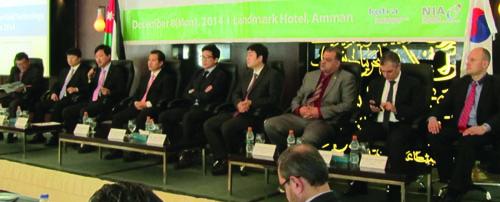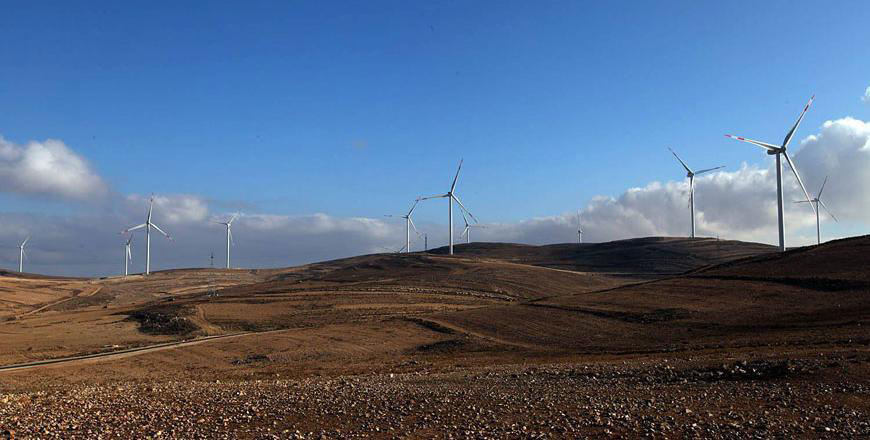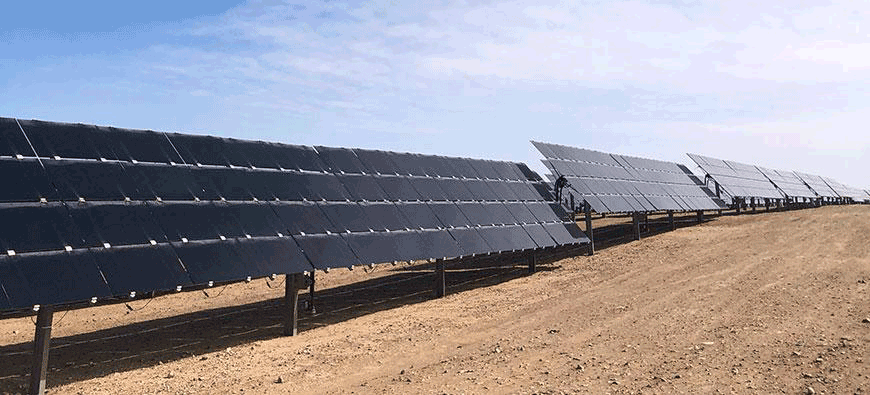You are here
Korean energy experts outline benefits of smart grid technologies
By Abeer Numan - Dec 08,2014 - Last updated at Dec 08,2014

AMMAN — Scores of energy sector representatives gathered on Monday to become acquainted with Korea’s smart grid technologies, explore ways to share related knowledge, and work together to bring about changes that ensure better and more efficient use of energy resources.
At the Korea-MENA Smart Grid Technology Forum 2014, attendees listened to presentations on technologies adopted in South Korea, taking notes on modern innovations and means to benefit from them.
Smart grids are electricity distribution systems that use digital technology. They can help gather information about supplier and consumer behaviour to distribute power more efficiently and reduce outages and damage.
For example, through smart-grid technologies, a person will be able to charge his mobile using solar energy, as one speaker noted.
At the forum, speakers highlighted smart-grid uses which can help reduce dependency on fossil fuel, bring down carbon dioxide emissions, minimise power loss and eventually reduce the overall cost of energy.
They also stressed the importance of regional cooperation and joint efforts as a means to ensure better results.
In an opening address, Korea’s Ambassador Choi Hong-ghi stressed his country’s interest in boosting its partnership with the Middle East region as a whole, and with Jordan in particular.
“Korea is always considering [the] Middle East as a real partner, not only political but also [in] economic cooperation,” he told the attendees.
Highlighting the importance of developing the Kingdom’s energy sector, the diplomat emphasised the increasing cost of energy and the economic burdens borne by the Kingdom to meet development and industrialisation goals.
“Despite its lack of natural resources, Jordan has long been known for its high standards and quality of life. Nowadays Jordan’s population has increased more than 15 times since its independence in 1946. According to NEPCO [National Electric Power Company], energy demand is expected to increase about 7 per cent annually for the next 10 years.
“The more Jordan becomes industrialised, the more energy it needs,” he noted, adding that because Jordan does not have oil resources it has had to import oil or gas to generate electricity.
“Energy imports of Jordan take up 20 per cent of its GDP, which account for 98 per cent of the country’s electricity generation needs,” the ambassador said.
Khaled Khalili, general manager of Trans Jordan for Electro Mechanical Supplies, told The Jordan Times that the Kingdom can easily adopt smart-grid technologies and benefit from them, highlighting the advanced skills of Jordanian engineers.
However, the problem is that institutions do not adopt a long-term plan and work towards steady progress by solving problems as they arise, Khalili said.
Even when there is a plan, it is drawn up by one person who might not even have the required expertise. It is like a one-man show. Joint efforts are not there, he criticised.
Bae Young Jin, CEO of KEPCO Amman, underscored the importance of smart-grid technologies and how electricity can be stored and saved, just as money, for rainy days.
“Jordan should initially consider the best mix, because so far the government has concentrated on natural gas. If it had thought of the best mix earlier, it would have saved a lot,” Bae told The Jordan Times.
Now, Jordan is trying to diversify its sources, he elaborated, adding that as renewable energy is needed, it is important to consider its consistency through adopting an energy storage system.
There is a plan for this mix, but a main problem for nuclear energy, for example, is that it needs a lot of cooling water.
“If there is not much water, air cooling may be adopted. But in that case, the size of the production will be small,” he said.
Bae, whose presentation emphasised how a smart-grid will cause changes in our lives, expressed enthusiasm about setting up an energy storage system, explaining how surplus renewable energy can be stored and save countries a great deal in the long run.
Jordan is suffering a high loss of energy as more than 20 per cent is lost. This can be highly reduced through smart-grid technologies through a power-line monitoring system, he noted.
Related Articles
AMMAN — Renewable energy sources, both wind and solar, currently form about 30 per cent of the Kingdom’s total energy mix, National Electric
AMMAN — Jordan currently leads the Arab world in electricity generation from renewable sources, Minister of Energy and Mineral Resources Sal
AMMAN — As a prominent energy-importer, Jordan is hastening its transition towards renewable energy, joining the global decarbonisation move















